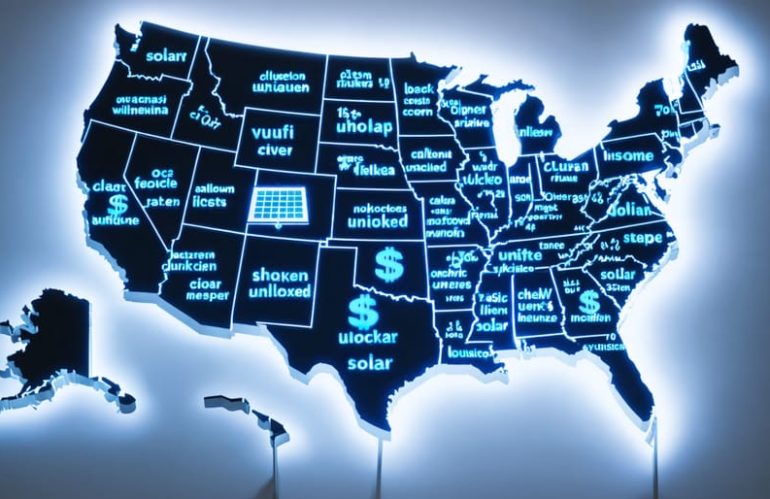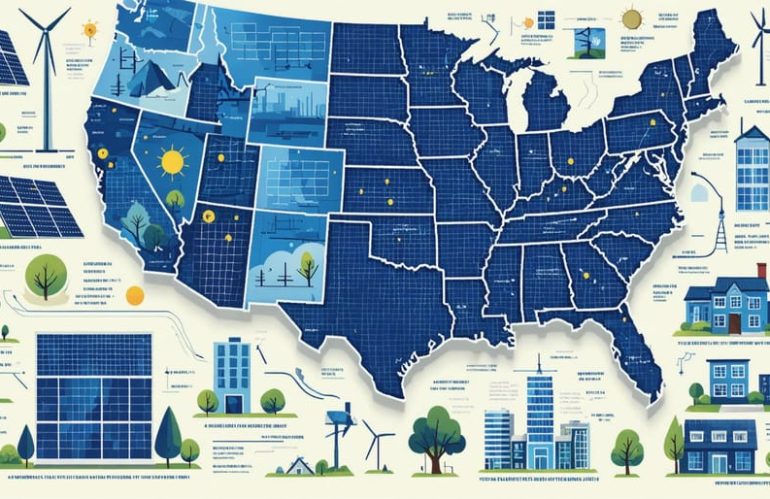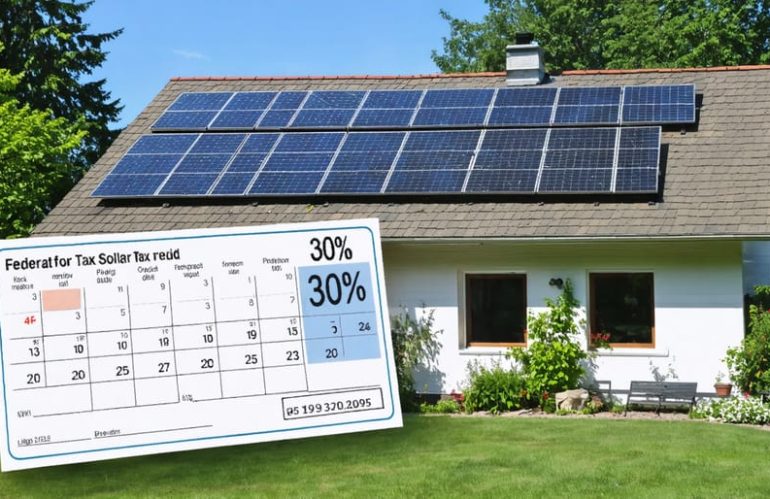Wondering if buying solar panels made overseas will cost you tax credits or inflate your installation costs? Cross-border electricity commerce directly affects your wallet, but not in the ways you might think. International trade shapes solar panel prices through tariffs and supply chains, yet federal incentives like the 30% Investment Tax Credit remain fully available regardless of where your equipment originates. Here’s what actually matters for your solar investment.
Check your equipment’s country of origin before purchase. While most solar panels come from international manufacturers, recent trade agreements have …
Category: Incentives and Regulations
Government incentives, tax benefits, and regulatory compliance
Texas Solar Panel Tax Credit: Save Thousands on Your Home Installation
Texas homeowners can slash their solar installation costs by up to 30% through the federal solar Investment Tax Credit (ITC), while unlocking additional local incentives unique to the Lone Star State. Beyond the federal credit, Texas residents benefit from property tax exemptions on their solar installations and utility-specific rebate programs that can reduce initial costs by thousands. Smart timing of your solar investment in 2024 maximizes these incentives, as federal rates will decrease in coming years.
San Antonio, Austin, and Dallas residents enjoy particularly generous municipal solar incentives, with some programs offering …
How Your Zip Code Unlocks Massive Solar Savings (2024 Incentives)
Unlock thousands in solar savings by discovering incentives specific to your zip code. From federal tax credits covering 30% of your installation costs to state-specific rebates and local utility company perks, your location determines exactly how much you can save on solar panels. Recent changes in solar legislation have created a complex web of financial incentives, with some homeowners saving up to $15,000 or more on their solar installation depending on where they live.
Smart homeowners know that solar incentives vary dramatically between neighborhoods, counties, and states. While the federal solar tax credit remains consistent …
Solar Panel Rules in Your State: What Homeowners Need to Know
Navigating solar regulations across U.S. states can make or break your home solar investment. From California’s groundbreaking solar mandate to Florida’s net metering policies, each state maintains distinct rules that directly impact installation costs, energy savings, and property rights. Understanding these regulations before installing solar panels ensures compliance, maximizes financial benefits, and prevents costly mistakes.
State solar regulations generally fall into three key categories: installation requirements, financial incentives, and utility connection policies. While federal guidelines provide a baseline, …
Solar Panel Recycling: How Your Old Panels Create a Greener Tomorrow
Solar panel recycling has emerged as a crucial component of sustainable energy practices, addressing the growing need to manage end-of-life photovoltaic panels responsibly. As millions of solar installations approach their 25-30 year lifespan, the industry has developed sophisticated recycling processes that recover up to 95% of valuable materials, including silver, silicon, and aluminum. These recovered materials not only reduce landfill waste but also provide raw materials for new panel …
Solar Panel Safety Standards That Protect Your Home (And Why They Matter)
Solar panel regulations protect homeowners while maximizing the benefits of clean energy investment. Following essential solar panel safety tips and compliance standards ensures your installation meets local building codes, qualifies for tax incentives, and operates safely for decades to come. Recent updates to national energy policies have streamlined the permitting process, making it easier than ever for homeowners to go solar while maintaining strict safety standards. Whether you’re planning a new …
Solar E-Services Rewards: Get Paid for Going Green with Your Home’s Solar System
Transform your energy savings into tangible rewards through e-services incentive programs, innovative initiatives that put money back in your pocket for embracing sustainable energy solutions. These programs offer homeowners significant financial benefits, including tax credits, utility rebates, and performance-based incentives for adopting energy-efficient technologies and participating in digital energy management systems.
Today’s e-services incentive landscape revolutionizes how homeowners interact with their energy consumption, offering smart-home integration, real-time usage monitoring, and automated savings opportunities…
Federal Solar Tax Credit: Save Thousands on Your Home Solar Installation
Slash your energy costs and secure substantial tax savings through the federal solar Investment Tax Credit (ITC), allowing you to deduct 30% of your total solar installation costs from your federal taxes through 2032. This powerful incentive, combined with the numerous benefits of solar installation, makes now the ideal time to invest in renewable energy for your home. The credit applies to both residential and commercial installations, covering equipment, labor, and even battery storage systems…
Illinois Solar Incentives That Actually Put Money Back in Your Pocket
Illinois homeowners can now slash their solar installation costs by up to 60% through layered state solar incentives and federal tax credits. The Illinois Shines program offers immediate upfront savings through Solar Renewable Energy Credits (SRECs), while the federal Investment Tax Credit provides an additional 30% reduction in system costs. Commonwealth Edison and Ameren customers qualify for net metering programs, earning credits for excess power generation that can eliminate …
California Solar Savings: Current Incentives That Make Going Solar Worth It
California homeowners can now slash their energy costs by up to 30% through the federal solar tax credit while accessing thousands in additional state rebates and incentives. The Golden State leads the nation in solar adoption, offering an impressive array of financial incentives that make residential solar installations more affordable than ever. From the Self-Generation Incentive Program (SGIP) to local utility rebates and property tax exclusions, California’s solar incentive landscape provides multiple pathways to significant savings.
The combination of falling solar panel costs and generous incentive programs has created …










